The acronym for our project is ICE AGED. That stands for Investigating Change in Ecology in Antarctica by Gizmologists, Educators, and Divers, which is much more appealing than the formal scientific title of our project, which is LTREB: Collaborative Research: Decadal Variation in Antarctic Marine Benthic Ecosystems. ICE AGED also accurately describes our goals, which are to revisit study sites from as early as 1963 with the original researchers, some of whom are, well, if not Aged, at least mature. Actually, mature does not describe them very well either. How about adult? Also not fitting. Okay, Aged it is.
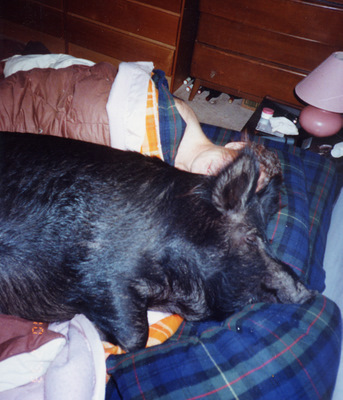 Paul Dayton and Francis Bacon. Paul is the one in the background, mostly hidden by Francis’ ear.
Paul Dayton and Francis Bacon. Paul is the one in the background, mostly hidden by Francis’ ear.
To do this, we need to update data that was collected and recorded using 1960’s technology. That was actual writing, with pens, in real paper notebooks. To relocate the sites, we have been searching out bamboo poles that were pounded into the frozen ground of Antarctica more than 40 years ago, long before GPS. We will be resampling experiments that divers cannot visit safely, now that we know more about the limits of human physiology under pressure. Does that make the original researchers who set up those experiments SuperHuman? I think so.
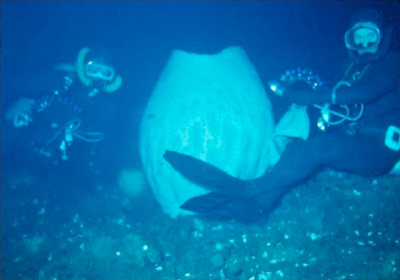 Paul Dayton, Anoxycalyx joubini, and Gordy Robilliard, diving in wetsuits in water that is -1.9 degrees C. Photo from Peter Brueggeman/Gerald Kooyman.
Paul Dayton, Anoxycalyx joubini, and Gordy Robilliard, diving in wetsuits in water that is -1.9 degrees C. Photo from Peter Brueggeman/Gerald Kooyman.
All of this wealth of information will be collected into a single database that will be available to everyone, internationally. Our plan is to set the stage for future Antarctic researchers by letting them easily examine what is already known, and search for patterns that may only show up over decades. Like climate change, ecological change may only become evident when a long history is known.
 It doesn’t look very exciting, but the valuable database will be our legacy to future generations.
It doesn’t look very exciting, but the valuable database will be our legacy to future generations.
Some of you may be asking, who cares about Antarctica? You should care because as a polar region, it, and the ice it contains, is very sensitive to warming, and changes in the ice not only effect sea levels, but more importantly, global weather patterns. Our cities, our agricultural regions, our transportation corridors, are all arranged based on historical weather patterns. If those change, we will have to do some major shifting of infrastructure and habitations, which will be uncomfortable for all of us.
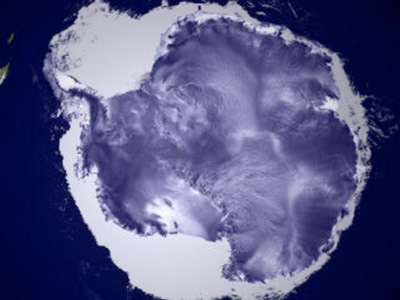 The Antarctic continent, though far south from all of us, controls the weather we experience. From NASA/Visible Earth.
The Antarctic continent, though far south from all of us, controls the weather we experience. From NASA/Visible Earth.
Aside from that general concern shared by all humans, we, as ecologists, care about Antarctica because it represents the last balanced ecosystem. Humans, as the best top predator around, have eliminated competition everywhere around the planet; we have killed off the wolves, the sharks, the tigers. That has left ecologists with only bottom-heavy ecosystems to study – systems that have lots of grazers but no predators. These systems have undergone such rapid change that there has not been time for evolution to catch up, and they are out of balance. We need balanced, fully functioning ecosystems to keep our entire biosphere operating smoothly, but right now, we don’t even know what a balanced ecosystem is, because ecology as a science is younger than the changes humans have been making. The incredible value of this 47 year data set from the Ross Sea region is that it can show us how a fully functioning ecosystem works, so that we have a goal to set for restoring ecosystems elsewhere. We need those restored ecosystems to cleanse our air and water, and allow us to keep living comfortably on the only planet we have.
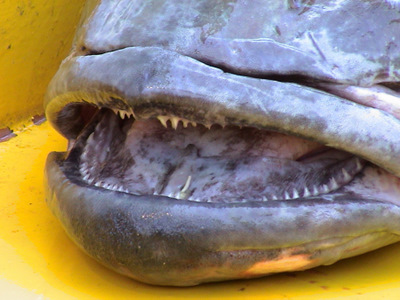 The teeth of a top Antarctic predator, Dissostichus mawsoni, the Antarctic toothfish.
The teeth of a top Antarctic predator, Dissostichus mawsoni, the Antarctic toothfish.
It is critical that we do this work now for two reasons. One is that even in this remote Antarctic location, new fishing pressures are killing all the top predators, leaving us with yet another system out of whack, and no other location on the planet where we have a chance to understand how a stable ecology works. The other is that Paul Dayton wants to retire, and we need to get all the polar information out of his brain before it is lost in the mysteries of his also-beloved deserts.
What can you do to help us? 1) don’t eat Chilean Sea Bass (AKA Antarctic Toothfish), and please see the Seafood Watch. This is the species that is being fished from the Ross Sea. 2) Go to the LastOcean.com and learn more about Antarctica. Consider joining FORSE, the Friends of the Ross Sea Ecosystem. 3) Send Paul ginseng, ginko, or sildenafil citrate to support his aging body. Okay, I’m just kidding on this one, but 1 and 2 are real!
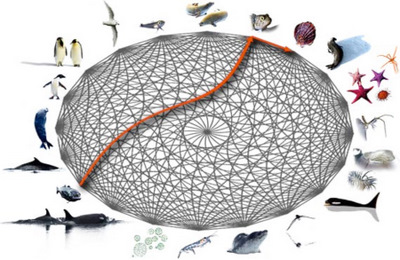 Graphic from the LastOcean.com, depicting the interconnected web of Antarctic life and the recent decline of toothfish populations.
Graphic from the LastOcean.com, depicting the interconnected web of Antarctic life and the recent decline of toothfish populations.

